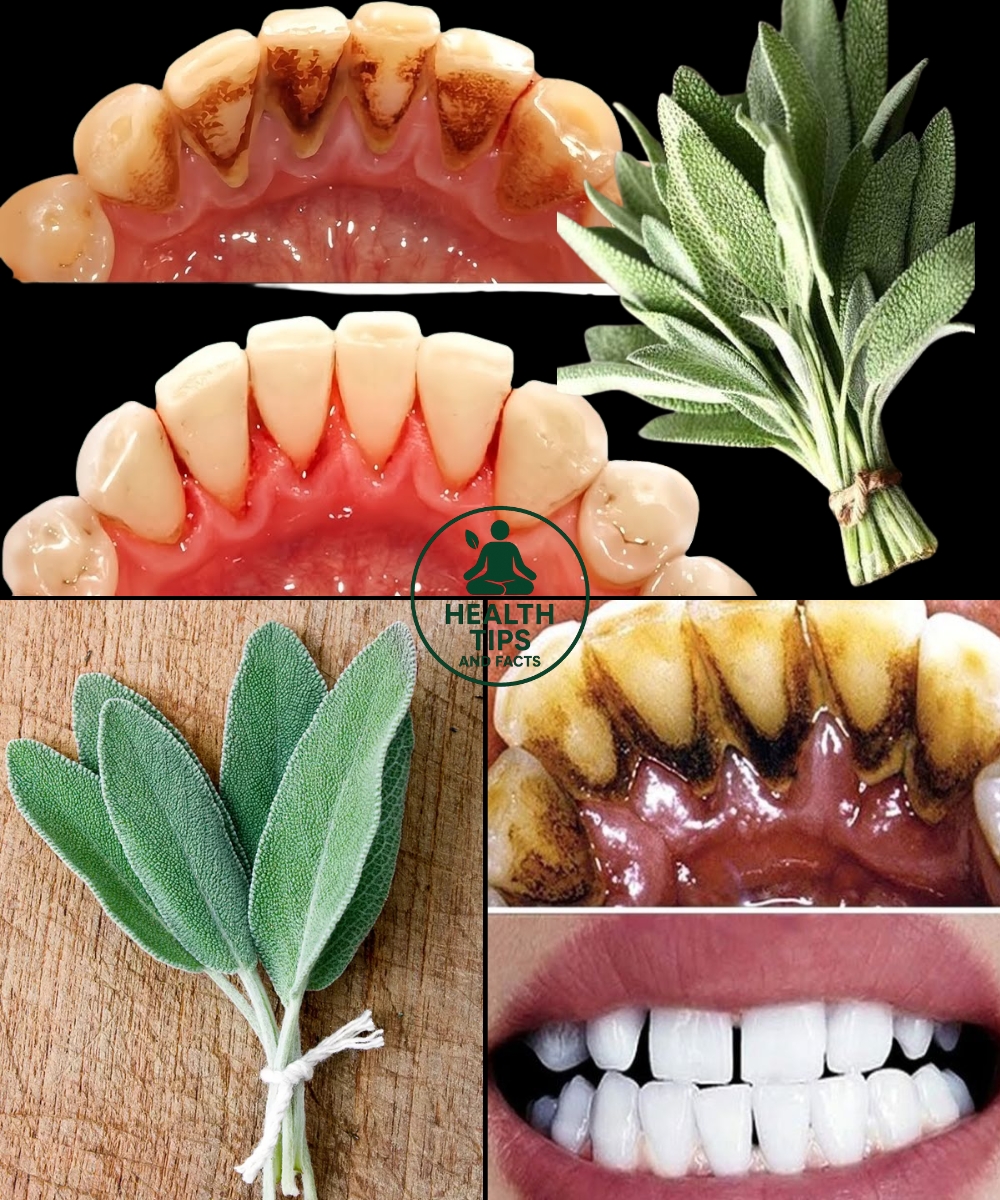If you’ve ever felt frustrated by stubborn plaque or tartar building up on your teeth, I want to share something simple — and surprisingly powerful — from nature: sage leaves. This humble herb has been part of traditional oral care for centuries, and with consistent, gentle use, it can make a real difference in how your mouth feels and looks.
Sage (Salvia officinalis) is more than just a flavorful kitchen herb. It carries real antibacterial, anti-inflammatory, and even antifungal power. That means it can help calm inflamed gums, fight the bacteria behind plaque, and freshen your breath — all naturally, without the strong chemicals in some commercial products. In fact, research shows that sage extract can significantly reduce Streptococcus mutans, a key culprit in plaque buildup.
Here are a few gentle, natural ways to use sage for oral care:
- Rub fresh leaves: Pick a couple of clean sage leaves, rinse them, and gently rub them on your teeth and gums for a minute or two. The natural oils in the leaves help break down stains and build-up.
- Make a sage rinse: Boil a handful of sage leaves in a cup of water for around 5–10 minutes, let it cool, then strain. You can use this as a warm mouthwash once or twice a day.
- Create a tooth-powder: Blend dried sage leaf powder with just a pinch of baking soda and a few drops of coconut oil. Use this mixture 2–3 times a week instead of (or alongside) your regular toothpaste. It’s a gentle scrub that supports natural whitening and plaque control.
If you stick with these rituals, many people notice changes within a few days — smoother, cleaner teeth, less “fuzziness” from plaque, and even a brighter tone. Over time, as you build this into your routine, your gums may become firmer, your breath more naturally fresh, and your smile more luminous — without relying on harsh chemicals.
Of course, sage is just one piece of holistic dental care. Pair it with good habits: brush twice a day with a soft brush, floss daily, and try to limit things like staining drinks (deeply pigmented teas or coffee) or smoking. Also, crunchy fruits and vegetables (like apples or carrots) can help clean your teeth naturally.
Final thought: Nature often gives us the simplest tools. Sage is not magic — but its gentle, time-tested properties make it a wonderful ally. Use it with consistency, and you may find a cleaner, brighter smile and healthier gums — all while honoring nature’s wisdom.
